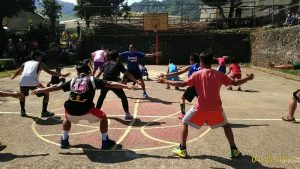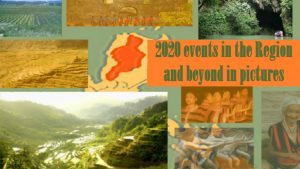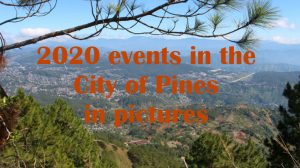In two weeks now, our city will be marking yet another milestone year —significantly under sobering circumstances — actually a hundred and eleven years of fateful existence. Indeed, it will be a commemorative event, better remembered because of the continuing pandemic threat, now better experienced without the usual pageantry that celebrates it.
Actually, there’s not much of a choice. With the virus still hovering here and there, scaled down activities even for more festive events like Baguio’s birthday should make do for now. Day in and day out, the local transmissions are escalating in high numbers, while the fatality count has risen to 6 in just a matter of two weeks. Every minute of the day is a moment in time spent mostly in tracking the rising numbers.
But stakeholders — those who feel deeply about our city — are not perturbed at all. Tourism managers and planners dialogued it out last week with city and health authorities precisely to act in concert because of two basic needs: first, one’s health, given the prevailing concerns on pandemic issues; second, the economy — businesses that have been drilled on the ground, jobs that dis-materialize, livelihoods that were no longer there because the business of making good business wasn’t not there any longer.
In a two-hour session, consensus was readily within grasp. Business revival can get through under sternly enforced health and safety protocols. Safely, slowly, steadily. It’s an SSS level of a consensus that can only get off the ground by sheer determination and expression of will, rather than of won’t.
Health officials, including medical experts, recognized the need for the economy to get back on track, appreciating the kind of situation that in a matter of 1 or 2 months, impeded any further activity. After all, regardless of the kind of quarantine level is imposed, it’s still restraint, pure and simple. You don’t take care of yourself, you’re likely to get it and spread it like no other.
– – –
Business sector leaders, including those manning the tourism front, acknowledged the crucial importance of heeding health and safety concerns, reason why the Hotels and Restaurants Association of Baguio even commissioned an economic survey precisely to pin down the numbers to their bottom-line impact. Stripped of the niceties, the numbers indicate a continuously ascending pace: more and more businesses grounded to a halt, more and more jobs done at less and less of working time, more and more idle hands clasped in shaky solidarity, given the deadly viral spread.
Evidently, there’s not much choice to prance us about. In times like these, solidarity remains the only option. It means having the will to set aside petty concerns in favor of a solidified front to get the economy, staggered as it has been, back on track. Simply, it’s having one’s business — whether in the bread-and-butter economic engines like education, tourism and services — revived and given the breath of fresh air that Baguio has been profiled these past several months.
At 111, Baguio stands out in all magnificence even without the pomp and pageantry of a festive celebration. Amid the pandemic, the city may well use the time to push consolidated efforts further. Health will certainly be a pressing, day-to-day concern, exacerbated by the rising number of cases that have befuddled many.
But alongside issues of safety, which should in fact dominate pandemic discussions, there is no denying that after staying safe, one also needs to stay at work. Livelihood, income, and daily sustenance are live-and-gut issues over which nothing, other than life, can have greater importance.
Rather than get further stressed out over safety issues, the astute in us should come together — as leaders in business and job access readily agree — to be collaborative, rather than be combative; to assimilate, rather than aggravate; and to be in unity, rather than plain unanimity.
See other columns:

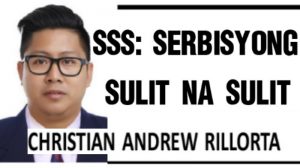
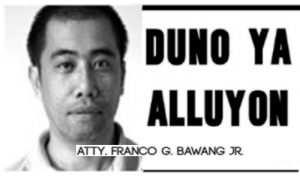
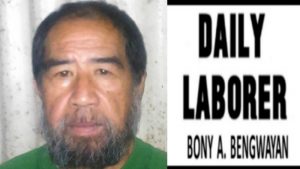

– – –
The agenda has been set into motion as Baguio marches into another milestone of a year. Truly, Baguio will have had all of 111 years of having lived through — and survived — adversities common to many other places with their own signature crisis and challenges. Undeniably, this year’s commemorative event ranks without question among the most somber and sobering remembrances, no doubt bred by the troubling times wrought by a continuing pandemic lurking widely throughout every community.
Fine, let’s look back and gleefully cross the bridge of time — the birthing years in the early century, the painstaking Commonwealth period under American tutelage, the past World War and the consequent adversities of foreign occupancy, the residual years of rehabilitation, the great quake of the early 90’s, and the rapid modernizing development in the last 20 years.
Regardless how anyone sees it, one thing stands out amid the harshness of those recollected years: Baguio gets back readily on its feet after every fall. Life for the locals reverts to originally primed settings, much of which accepted because trust has been invested in those mandated to govern.
Baguio’s strategic locale — nestling like a valley cradled by rising mountain crests, nurtured by an environmental clime like no other, peopled by kindred souls habituated closest to nature’s finest resources of a given episode — must have something to do with the way life gets to be in cruise control. Accepting things the way they were — and have been under even the most excruciating situation — is pre-ordained and therefore pre-destined. Just the way it is. Like asserting in these times, it’s just the way it is and will ever be.
Thus, for every fall, a rebound; every mis-step simply merits a momentary pause, then getting back for more tentative strides. Such had been the way it was after the war. Such had it been after the quake. Pre-ordained, pre-destined events that come from an unfaltering faith of being in a place nearest the skies, of having struggle to reach creeping clouds.
– – –
Hard lessons in the past may well augur best for Baguio to get past this pandemic — as borne by historically recorded rebounds from past foreign conquests, two global wars, and the periodic occurrences of natural disasters, evolving calamities, and recently, climate change induced events.
The year 2020 may well be marked by a resilient and recovery effort for Baguio to get back on track, this time better equipped to continue balancing off health and economic needs. This signifies willingness never to slacken or to veer off-course for as long as the core of government’s response remains firm, unwavering, and resolute, as harnessed into a cohesive resolve from collaborative consensus with private leaders.
This is what Mayor Benjie Magalong — whose Father Figure profile has long impressed a populace for firmly being his own man in full command and in solid control — will be contending in the ensuing time, amid the lingering health threat. It’s a race against time indeed, yet remains undaunted by it all, confident to pull it through in time. The undented optimism can only permeate any work environment. And it is optimism that can carry us through this dark time in Baguio’s episode.
What Baguio could have been this year, providently blessed to have well-planned strategies on jump-start stage, may just serve to fortify the resolve to stay the course, unfazed by the continuing threat to public health. Staying the course simply means staying safe, saving lives, and fully encouraged to get his family and loved ones the head-start when times are less dire.
Good governance, effective leadership, humility over authority, integrity versus self-enrichment, character over career, discipline against carefreeness — these are recurring words from today’s brand of no-nonsense leaders intent on making a simple difference in these troubling times. Oh yes, as one, that can be done. Apart, clashing with each other at the merest of whim or greed or envy, we’ll all be done.
You might also like:

